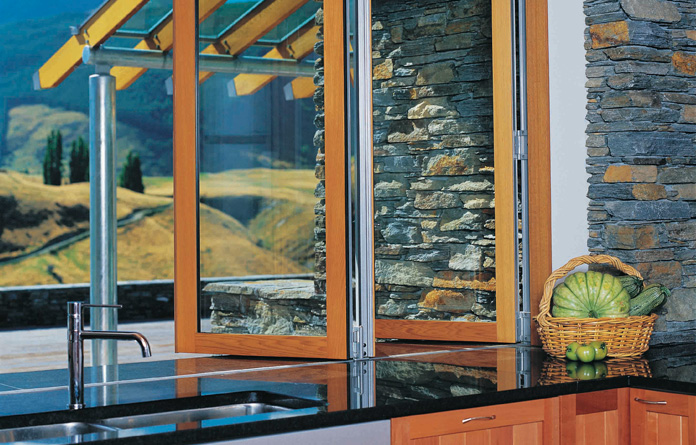Minimising condensation is an important consideration when designing or renovating your home and incorporation of energy efficient windows into your design will greatly reduce condensation. Design of windows does not have to be compromised when considering thermal efficiency.
Here is an example of integration of the insulating properties of timber with strong and low maintenance aluminum.
Getting up in the morning you may have seen the water droplets covering the inside of your windows. Although windows may seem like the culprit, they are actually not the cause of condensation. Condensation is due to you and your family’s activity within your home. Given the right conditions condensation will form on any surface, but it is often more visible on windows. That dampness could be right through your home.
Where does the moisture come from?
- From us – every breath when sleeping or awake, puts moisture into the air.
- From using water, such as when cooking, showering and growing indoor plants.
- Use of clothes dryers and un-flued gas heaters can create a significant amount of moisture inside the home.
- New houses will have a higher level of internal moisture as framing timber, concrete floor slabs and other building materials can take many months to stabilise.
- Even your geographical location and climate can have an effect on condensation. New Zealand humidity levels vary across the country.
The Effects of Condensation
High humidity promotes mould growth on walls, ceilings and materials, such as curtains and carpets. Not only is mould growth and moisture is a major cause of deterioration in homes and buildings, it can also contribute to health issues for your family.
Reducing condensation
As condensation is a living conditions issue, simply installing new windows will not fix the problem. There are a variety of methods to help minimise the chance for condensation:
- Using double glazed windows helps keep the surface of the inside glass warmer and so reduces the likelihood of condensation forming on the windows.
- Like double glazing, thermally efficient window frames help prevent the transfer of heat energy through window frames and therefore help reduce the incidence of condensation on windows. Thermally efficient window frames should only be used with double glazing.
- Ventilation can help reduce moisture and condensation, keeping your home drier, healthier and more comfortable. Keeping windows open, even if only by a little for some of the daytime, can help reduce condensation. When cooking, drying laundry, or showering, make sure you let the water vapour escape outside. You can do this by opening windows or vents, or turning on a ventilation fan.
- Use of dehumidifiers and domestic ventilation systems
Sources:





